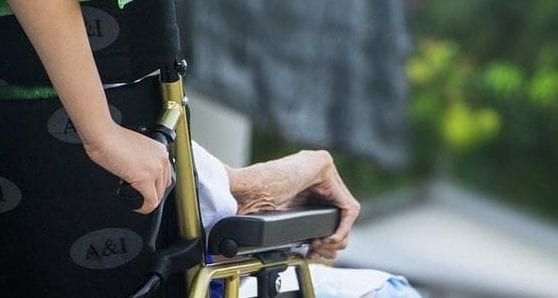 Are you aware of the significant contributions that family caregivers make to society?
Are you aware of the significant contributions that family caregivers make to society?
In 2012, eight million Canadians – 25 per cent of the population! – provided care and 2.2 million Canadians received that care in their homes – most often from family.
In 2009, the estimated value of family care was more than $25 billion.
For many, caregiving is all day, 365 days a year – and their work is often invisible to others. So it’s important that carers feel their contributions are valued, in particular in their interactions with health-care professionals, their employers and other family members.
Many caregivers view what they do as a natural part of family relationships. They don’t do it for personal benefit or with the expectation of appreciation. I noticed a similar phenomenon when I spoke with a nursing home volunteer who, for this same reason, refused to attend a volunteer recognition event.
My research also suggests there may be some carers for whom praise such as, “You’re doing a great job,” or “You’re a wonderful daughter or son” can actually invoke guilt or ambivalence.
Why guilt?
Because caring is a complex emotional experience, often connected to our identity and self-worth. When we confuse ‘caring for’ with ‘caring about,’ guilt can result. What happens, for example, when caregivers can no longer manage and face difficult decisions about institutionalization for their loved one?
Lastly, caregivers can view recognition as a trivial concern relative to the care recipient’s need for services. In this respect, any recognition of their work is unhelpful.
So what do caregivers want?
What caregivers need are accessible services for the person they’re caring for, when they need them. Caregivers have told me they want access to services for themselves and the care recipient, not a pat on the back.
Truly being aware of caregiver contributions and needs means being aware of the crucial importance of formal health-care supports and policies. Our governments could do much more in this regard.
Caregiver concerns are supported by existing evidence. Some research emphasizes the benefits of services and policies targeting carers directly, such as work accommodation and income assistance.
However, being able to access sufficient, quality health-care services, such as home care for the loved one being cared for, is also important. This is what our governments must do if they truly want to support caregiving in Canada.
This doesn’t mean that when formal services are provided, family carers do less – instead, they can instead focus on different aspects of care and are then better able to preserve their sense of well-being. Caregivers could then be less frustrated by having to fight against an impermeable system to access help for their family member.
I am suspicious that the rhetoric of carer acknowledgement is used by governments to imply that they are not responsible for the provision of care – justifying further erosion of publicly-funded services.
Truly recognizing carers means providing helpful, supportive, long-term health and social care services for those who need them – as well as for their carers.
Laura Funk is an associate professor of Sociology at the University of Manitoba who has studied issues of aging, unpaid and paid care work and health for more than 18 years. Some of her current research focuses on how family carers in Winnipeg navigate health and social care systems.
An aging Canadian population and smaller families, combined with reduced health and social care budgets, mean the challenges of providing care to seniors will only worsen. Legions of families are buckling under the emotional, physical and fiscal burdens of caregiving. These pressures will be exacerbated by growing numbers of people living with demanding health challenges such as dementia, with fewer and fewer people to take care of them. The natural web of caring that so many of us take for granted is at risk of unravelling. Troy Media’s Family Ties examines the issues facing caregivers and the health-care system in general and seeks solutions. If you have a story to tell, contact us at [email protected].
The views, opinions and positions expressed by columnists and contributors are the author’s alone. They do not inherently or expressly reflect the views, opinions and/or positions of our publication.

